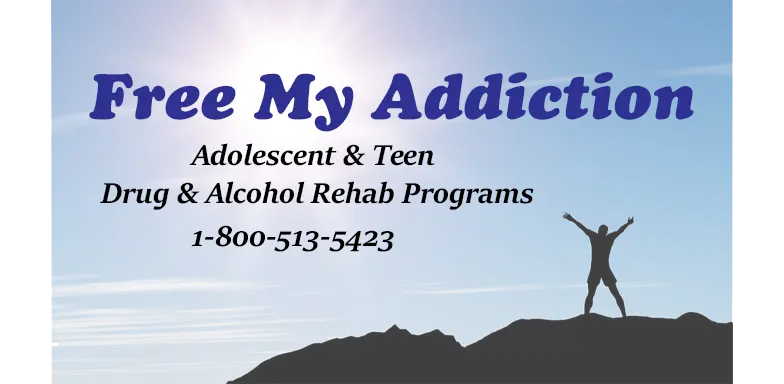Is My Child Using Drugs?

Learn the warning signs of someone using drugs or alcohol.
Call now for 24/7 services. 100% confidential. Insurance accepted.
Wondering if your teen is using drugs or alcohol can be one of the biggest worries a parent can face. Normal adolescent mood swings can resemble signs of drug use, however, there are a few signs that you can look for.
NOTE: Some parents have said that when admitting their child to rehab, they saw no signs of substance abuse.
Signs of drug use in teenagers watch for:
- Red or bloodshot eyes, dilated or constricted pupils.
- Frequent cough, runny nose, sniffles, or stuffy nose.
- Change in sleep patterns, such as insomnia, napping, or sleeping at inappropriate times.
- Lack of cleanliness, neglecting personal appearance, or grooming.
- Sudden appetite, especially for salty or sweet cravings (“the munchies”), or unexplained weight loss or loss of appetite. Refusing food, lying about eating.
- Unexplained periods or reactions of moodiness, depression, anxiety, irritability, over-sensitivity, or hostility.
Other signs you may notice:
- Overreactions or outbursts of anger to simple requests or comments.
- Avoids interacting and communicating with parents, and withdraws from family activities.
- Loss of interest in previously important things such as hobbies, sports, and activities.
- Loss of motivation and enthusiasm for things that used to excite them.
- Periods of unexplained absence from home.
- Less concern for other people’s feelings and only caring for themselves, or being self-absorbed.
- Unexplained tiredness, lack of energy, and vitality. Being overly hyper can also be a symptom. Teens could be overly energetic, cleaning all the time, and talking at a faster rate.
- Change in values, ideas, and beliefs.
- Loss of ability to assume responsibility.
- Secretiveness about friends. Changes in friends, unwillingness to introduce friends.
- Secretive phone calls. People call for your teen and refuse to identify themselves or hang up when parents answer the phone.
- Unexplained money loss or items being “misplaced” in your home.
- Going immediately to their bedroom upon arriving home, or spending too much time in their bedroom in general.
- Sudden, unexplained overreactions, “rages”.
- Lying about small things.
Teachers may notice:
- Reduced attention span, concentration, or short-term memory.
- Frequently misses classes or is late to class. Skipping school altogether.
- Less participation in class.
- Sleeping in class.
- Loss of motivation, interest, does not participate in school activities.
- Forgetfulness, slower to respond when asked questions.
- Increased discipline and behavioral problems.
- Untidy appearance, dress, lack of personal hygiene.
- Changes in friends and peer group.
- Drop in grades.
Make sure not to miss some of the more obvious signs that your child is using drugs or alcohol:
- Capsules, pills, or tablets, are hidden in their room.
- Cigarette rolling papers.
- Roach clips.
- Pipes, pipe fittings, small screens.
- The odor of marijuana (similar to skunk spray) in their room, on their person, or on clothing.
- Incense or room deodorizers.
- Eye drops, mouthwash, fresh gum, perfume, or cologne are always on hand.
Signs of drug use specific to certain drugs:
Methamphetamine: Excitability, sleeplessness for days and weeks at a time, being wired up, total loss of appetite, extreme weight loss, dilated pupils, overly talkative, deluded sense of power, paranoia, depression, loss of control, nervousness, unusual sweating, shaking, anxiety, hallucinations, aggression, violence, dizziness, mood changes, blurred vision, mental confusion, agitation.
Cocaine: Impaired thinking, confusion, anxiety, depression, short-tempered, panic attacks, suspicious of everyone and everything, dilated pupils, sleeplessness, loss of appetite, restlessness, irritability, very talkative, scratching, hallucinations, paranoia.
Inhalants: Short-lasting euphoria, giggling, silliness, dizziness. Headaches, fainting, or going unconscious. Use Over a long term: Short-term memory loss, emotional instability, impairment of reasoning, slurred speech, clumsy staggering gait, eye flutters, tremors, hearing loss, loss of sense of smell, and escalating stages of brain atrophy. In some cases, these serious long-term effects are reversible with detoxification and nutritional therapy, however, sometimes the brain damage is irreversible or only partially reversible.
Heroin: Chemically enforced euphoria. “Nodding,” which is a dreamlike state, near sleep, drifting off for minutes or hours. For long-time heroin users, the drug may begin to act like a stimulant and the teen can do their normal daily routine; however, for others, it leaves them completely powerless to do anything.
Marijuana: Snacking more than usual, bloodshot red eyes, dry mouth, excessive and uncontrollable laughter, forgetfulness, short-term memory loss, extreme lethargy, delayed motor skills, occasional paranoia, laziness, lack of motivation, stupidity, skunky smell on body, hair, and clothes, and strong mood changes and behaviors when the person is “high”.
This simple test may help you to identify if your son or daughter is using drugs or alcohol.
Click here to take the test. Is My Teenager Using Drugs? Test
Call us today to speak with a counselor if you are concerned your teenager is using drugs or alcohol.
1-800-513-5423
If you need help for an adult in your life Addiction No More is a locator service for treatment programs for adults.

